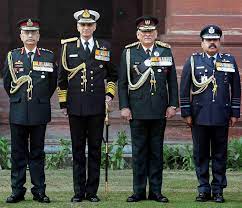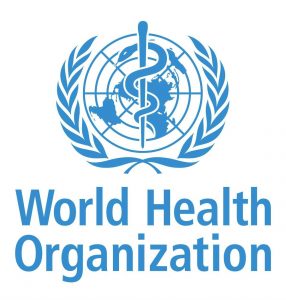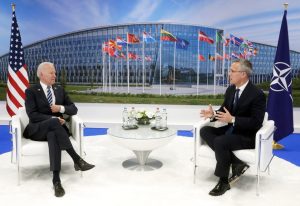Today Current Affairs: 22nd June 2021 for UPSC IAS exams, State PSC exams, SSC CGL, State SSC, RRB, Railways, Banking Exam & IBPS, etc
Table of Contents
NISHTHA: Teachers’ Training Programme:

Ministry of Tribal Affairs and NCERT come together on a joint mission for NISHTHA Capacity Building Programme for Eklavya Model Residential Schools (EMRSs) Teachers and Principals.
- National Initiative for School Heads and Teachers Holistic Advancement (NISHTHA) is a national mission to improve learning outcomes at the elementary level.
- This is done through integrated teacher training.
- It is the largest teachers’ training programme of its kind in the world.
- It has been launched under the Centrally Sponsored Scheme of Samagra Shiksha in 2109-20.
- Objective: To motivate and equip teachers to encourage and foster critical thinking in students and also teachers will get awareness and develop their skills on various aspects.
- Training will be conducted directly by 33120 Key Resource Persons (KRPs) and State Resource Persons (SRP) identified by the State and UTs, who will in turn be trained by 120 National Resource Persons identified from National Council of Educational Research and Training (NCERT), National Institute of Educational Planning and Administration (NIEPA).
The Cinematograph Act Of 1952:

The draft was recently released by the Centre. It seeks to amend the Cinematograph Act of 1952.
Key Provisions:
- Revision of certification: This provision will give the Centre “revisionary powers” and enable it to “re-examine” films already cleared by the Central Board of Film Certification (CBFC).
- It seeks to introduce age-based categorisation and classification. It proposes to divide the existing categories (U, U/A and A) into further age-based groups: U/A 7+, U/A 13+ and U/A 16+.
- At present, there are no enabling provisions to check film piracy. Violation shall be punishable with imprisonment and fine.
- Eternal certificate: It proposes to certify films for perpetuity. Currently a certificate issued by the CBFC is valid only for 10 years.
Chief Of Defence Staff:

Chief of Defence Staff to chair important meeting to sort out issues on theatre command.
- The meeting is called to iron out the differences on issue of the structure of the Theatre Commands.
- The war fighting structure of the Armed Forces (Army, Air Force and Navy) is being reorganised into theatre commands with an aim to have the assets of all three forces under one commander responsible for all operations under his theatre.
- At present, the three armed forces have together 17 commands with Army and Air Force having seven commands each and Navy has three commands.
- Read this to know more about theatre commands.
About CDS:
- He will be the single-point military adviser to the government as suggested by the Kargil Review Committee in 1999.
- He will be a Four-star General.
- CDS acts as the permanent Chairman of the Chiefs of Staff Committee which will also have three service chiefs as members.
- His core function will be to foster greater operational synergy between the three service branches of the Indian military and keep inter-service frictions to a minimum.
Land For Life Award: UN:

Shyam Sundar Jyani, a Rajasthan-based climate activist, has won the prestigious United Nations’ Land for Life Award for his environment conservation concept, Familial Forestry.
- The winner was announced on 17th June 2021 which is the World Day to Combat Desertification and Drought.
- Familial Forestry means transferring the care of the tree and environment in the family so that a tree becomes a part of the family’s consciousness.
- Every two years, the United Nations Convention to Combat Desertification (UNCCD) organizes the Land for Life Award.
- The Award recognizes excellence and innovation in efforts towards land in balance.
- The past editions shed light on inspiring initiatives of recovery and restoration of degraded landscapes worldwide.
- They all made a significant contribution towards achieving Sustainable Development Goal (SDG) 15: “Life on Land”, in particular Target 15.3 Land Degradation Neutrality (LDN).
- This year the award will put the spotlight on individuals/organizations that made an outstanding contribution to land degradation neutrality on a large scale.
- Which means with long-term changes and dedicated actions for 25 years or longer and remarkable positive impacts on land, people, communities, and society.
Krivak Stealth Frigates:

The Vice-Chief of the Naval Staff has inaugurated the construction of the second frigate of the Krivak or Talwar class.
- The construction of the first ship was laid in January, 2021. It would be delivered in 2026 and the second ship after six months.
- The Krivak class stealth ships are being built with technology transfer from Russia by Goa Shipyard Ltd. (GSL) under ‘Make in India’. Engines for the ships are supplied by Ukraine.
- In October 2016, India and Russia signed an Inter-Governmental Agreement (IGA) for four Krivak or Talwar stealth frigates.
- The first two frigates will be built in Yantar Shipyard, in Kaliningrad, Russia. The following two will be built in GSL.
- The new Krivak frigates will have the same engines and armament configuration as Yantar’s last three frigates – INS Teg, Tarkash and Trikand.
- These will be armed with BrahMos anti-ship and land attack missiles
- They are primarily used to accomplish a wide variety of naval missions such as finding and eliminating enemy submarines and large surface ships.
Existing Frigates:
- The navy already operates six Krivak III frigates. The first three joined the fleet between June 2003 and April 2004, followed by another three between April 2012 and June 2013. With the current contract, the navy will operate 10 Krivak frigates.
Flash sales:

The government proposed changes to the Consumer Protection (e-commerce) Rules 2020, banning all “flash sales” in order to monitor the deep discounts offered on e-commerce websites.
- Conventional flash sales by third party sellers are not banned on e-commerce platforms but only the predatory ones.
- Small businesses complain of misuse of market dominance and deep discounting by e-commerce marketplaces such as Amazon and Flipkart.
- The Ministry of Consumer Affairs has been receiving complaints against widespread cheating and unfair trade practices being observed in the e-commerce ecosystem.
- Certain e-commerce entities are engaging in limiting consumer choice by indulging in ‘back to back’ or ‘flash’ sales wherein one seller on a platform does not carry any inventory or order fulfilment capability but merely places a ‘flash or back to back’ order with another seller controlled by platform.
E-Commerce:
- Electronic commerce or e-commerce is a business model that lets firms and individuals buy and sell things over the Internet.
- Propelled by rising smartphone penetration, the launch of 4G networks and increasing consumer wealth, the Indian e-commerce market is expected to grow to USD 200 billion by 2026 from USD 38.5 billion in 2017.
- The Indian e-commerce industry has been on an upward growth trajectory and is expected to surpass the US to become the second-largest e-commerce market in the world by 2034.
Delimitation Exercise Has Started In Jammu And Kashmir (J&K):

The completion of the delimitation exercise will mark the political process in the Union Territory (UT) that has been under Centre’s rule since June 2018.
- The delimitation exercise in J&K in the past has been slightly different from those in the rest of the country because of the region’s special status.
- The delimitation of Lok Sabha seats was then governed by the Indian Constitution in J&K, but the delimitation of Assembly seats was governed separately by the Jammu and Kashmir Constitution and Jammu and Kashmir Representation of the People Act, 1957.
- However, Jammu and Kashmir lost its special status and was divided into two Union Territories (J&K and Ladakh) after the abrogation of its special status under Article 370, on 5th August, 2019.
- Following this, a special delimitation commission was constituted on 6th March, 2020 to carve out Assembly and Parliament seats in the UT.
Delimitation:
- Delimitation is the act of fixing or redrawing the limits or boundaries of territorial constituencies (Assembly or Lok Sabha seat) in a country or a province having a legislative body, as per the Election Commission.
- The delimitation exercise is carried out by an independent high-powered panel known as the Delimitation Commission whose orders have the force of law and cannot be questioned by any court.
- The exercise has been carried out over the years to redefine the area of a constituency-based on its population size (based on the last Census).
- Aside from changing the limits of a constituency, the process may result in change in the number of seats in a state.
- This exercise also involves reservation of Assembly seats for Scheduled Castes (SCs) and Scheduled Tribes (STs) in accordance with the Constitution.
- Aim: The key aim is to have equal representation to equal segments of the population in order to ensure a fair division of geographical areas so that all political parties or candidates contesting elections have a level playing field in terms of a number of voters.
Suicide Worldwide In 2019: WHO:

A report titled Suicide worldwide in 2019 was published by the World Health Organization (WHO).
- Suicide is defined as death caused by self-directed injurious behavior with intent to die as a result of the behavior.
Suicides in 2019:
- The Covid-19-pandemic has increased mental stress globally. However a crisis was already in place in 2019. Approximately 7,03,000 people or one in a 100, died by suicide in 2019.
- The global age-standardized suicide rate was 9.0 per 1,00,000 population for 2019.
- Many of these were young people. More than half of global suicides (58%) occurred before the age of 50 years. Suicide was the fourth-leading cause of death among young people aged 15-29 globally in 2019.
- Some 77% of global suicides in 2019 occurred in low- and middle-income countries.
Regional Data :
- Africa, Europe and South-East Asia recorded suicide rates higher than the global average.
- This number was highest in the Africa region (11.2) followed by Europe (10.5) and South-East Asia (10.2).
- In 20 years (2000-2019), the global suicide rate had decreased by 36%.
- The decrease ranged from 17% in the Eastern Mediterranean Region to 47% in the European Region and 49% in the Western The Region of the Americas recorded a substantial 17% increase in the suicide rate during the same period and has been an exception.
Suicides in India:
- India has the highest suicide rate in the Southeast Asian region.
- A total of 1,34,516 cases of suicide were reported in 2018 in India, according to the National Crime Records Bureau.
- While the rate of suicide was 9.9 in 2017, it increased to 10.2 in 2018.
China As A Security Risk: NATO:

The recently held North Atlantic Treaty Organization (NATO) summit for the first time has explicitly described China as a security risk.
- The other two threats identified by the NATO ‘declaration’ are Russia and terrorism.
North Atlantic Treaty Organization’s (NATO):
- Formation: NATO was established by the North Atlantic Treaty (also called the Washington Treaty) of 4th April, 1949, by the United States, Canada, and several Western European nations to provide collective security against the Soviet Union.
- It is headquartered at Brussels, Belgium.
- Political and Military Alliance: NATO’s primary goals are the collective defence of its members and the maintenance of a democratic peace in the North Atlantic area.
- The collective defence principle enshrined in NATO’s Article V states that “an attack against one ally is considered as an attack against all allies”.
- NATO’s Forces: NATO has a military and civilian headquarters and an integrated military command structure but very few forces or assets are exclusively its own.
NATO leaders declared China a constant security challenge and said the Chinese are working to undermine global order.
- This is in sync with US President efforts to get allies to speak out with a more unified voice against China’s trade, military and human rights practices.
- The US’ growing conviction is that China is a threat to its global supremacy and must be contained.
- However, both France and Germany sought to put some distance between NATO’s official position and their own perception of China.
- NATO’s European member states may view China as an economic rival and adversary, but they are unconvinced by the American line that it is an outright security threat.
China’s Stand: It has urged NATO to “view China’s development rationally, stop exaggerating various forms of ‘China threat theory’ and not to use China’s legitimate interests and legal rights as excuses for manipulating group politics artificially creating confrontations”.
Swiss Banks: Funds Of Indians Have Risen

Certain reports have appeared in the media on 18.06.2021 stating that funds of Indians in Swiss Banks have risen to over Rs 20,700 crore (CHF 2.55 billion) at the end of 2020 from Rs 6,625 crore (CHF 899 million) at the end of 2019, reversing a 2 year declining trend.
View of Govt of India on these media reports:
- India and Switzerland are signatories to the Multilateral Convention on Mutual Administrative Assistance in Tax Matters (MAAC).
- Both countries have also signed the Multilateral Competent Authority Agreement (MCAA) pursuant to which, the Automatic Exchange of Information (AEOI) is activated between the two countries for sharing of financial account information annually for calendar year 2018 onwards.
- Exchanges of Financial Account information in respect of residents of each country have taken place between both countries in 2019 as well as 2020.
- In view of the existing legal arrangement for exchange of information of financial accounts, there does not appear to be any significant possibility of the increase of deposits in the Swiss banks which is out of undeclared incomes of Indian residents.
National Internet Exchange of India (NIXI) : 18th Foundation Day.:

NIXI is a non-profit Company incorporated under Section 25 of the India Companies Act, 1956 with an objective of facilitating improved internet services in the country. It was registered on 19 June 2003 for spreading the internet infrastructure to the citizens of India through the following activities:
- Internet Exchanges through which the internet data is exchanged amongst ISP’s, Data Centers and content delivery networks (CDNs).
- NIXI is also the .IN Registry managing India’s country code top level domain (ccTLD) – .IN and .भारत IDN domain.
- NIXI also manages the National Internet Registry of the country delegating Internet Protocol addresses (IPv4 and IPv6) and Autonomous System numbers to the Indian Affiliates.
Hungary’s New Anti-LGBT+ law:

Hundreds of protesters thronged the streets of Budapest, demanding the reversal of a newly adopted law that effectively bans all content about homosexuality and gender change from Hungarian school curriculum and television shows for children under the age of 18.
- The latest Hungarian legislation outlaws disseminating information meant for children which is considered to promote homosexuality or gender change.
- The law also limits who can conduct sex education classes in schools. Now, only individuals and organisations listed in an official government registry can carry out these classes.
- The limitations placed on content is not limited to school curriculum alone. It also bans TV shows meant for children, which feature gay characters or LGBTQI+ themes.
- The law also bans companies and organisations from running advertisements in support of the LBTQI+ community, if they are targeted at minors.
Hungary:
- Hungary is a landlocked country in Central Europe.
- It is bordered by Slovakia to the north, Ukraine to the northeast, Romania to the east and southeast, Serbia to the south, Croatia and Slovenia to the southwest, and Austria to the west.
- Budapest is the country’s capital and largest city.
- Hungary’s geography has traditionally been defined by its two main waterways, the Danube and Tisza rivers.
- Lake Hévíz is located in Hévíz, Hungary. It is the largest thermal lake in the world which is available for swimming.
Juneteenth: National Holiday:

US President Joe Biden is soon expected to sign a law making June 19, or “Juneteenth”, a national holiday recognised by the federal government, commemorating the end of slavery after the American Civil War (1861-65).
- Juneteenth is the portmanteau of June and nineteenth and is recognised as a state holiday in 47 US states.
- The day is the oldest nationally celebrated commemoration of the ending of slavery in the US and is observed on June 19.
- It is also known as Emancipation Day or Juneteenth Independence Day.
- Juneteenth will be the first new federal holiday created in almost four decades, and will now enjoy the same status as the 10 existing annual holidays, which include Memorial Day, Veterans Day and Thanksgiving. The last such holiday – Martin Luther King Jr. Day – was created in 1983, in honour of the civil rights hero.
- On January 1, 1863, then-president Abraham Lincoln issued the Emancipation Proclamation, which declared that “all persons held as slaves” within the states in rebellion “are, and henceforward shall be free.”
- Even so, over 2.5 years after Lincoln’s proclamation, many slave owners continued to hold their slaves captive by hiding this information from them and holding them slaves for one more harvest season.
- On June 19, 1865, Major General Gordon Granger arrived in Galveston, Texas and announced the end of both the Civil War and slavery. Since then, Juneteenth has become a largely symbolic date representing freedom for African Americans.
The National Disaster Response Fund:

The National Disaster Response Fund was opened up for donation from individuals and institutions in June 2020, but according to information procured through Right to Information, it turns out that just about Rs 63,000 has been donated to the fund between July 13, 2020 and February 26, 2021.
- The National Disaster Response Fund is a fund managed by the Central Government and is used to “meet the expenses for emergency response, relief and rehabilitation” for any disaster situation.
- The NDRF supplements the State Disaster Response Fund in case sufficient funds are not available with the state funds to facilitate immediate relief in case of calamities of severe nature.
- It was earlier called the National Calamity Contingency Fund (NCCF) which had been operated as per the guidelines laid down by the 11th Finance Commission.
- In 2005, the Disaster Management Act (DMA) was enacted and this renamed the NCCF as the National Disaster Response Fund (NDRF). Accordingly, the funds of the NCCF were merged into the NDRF.
- The NDRF was set up in accordance with Section 46 of the Disaster Management Act, 2005.
- June 2020: The Finance Ministry has given approval to a proposal to allow individuals and institutions to contribute directly to the National Disaster Relief Fund (NDRF) as per Section 46(1)(b) of the Disaster Management (DM) Act, 2005.




